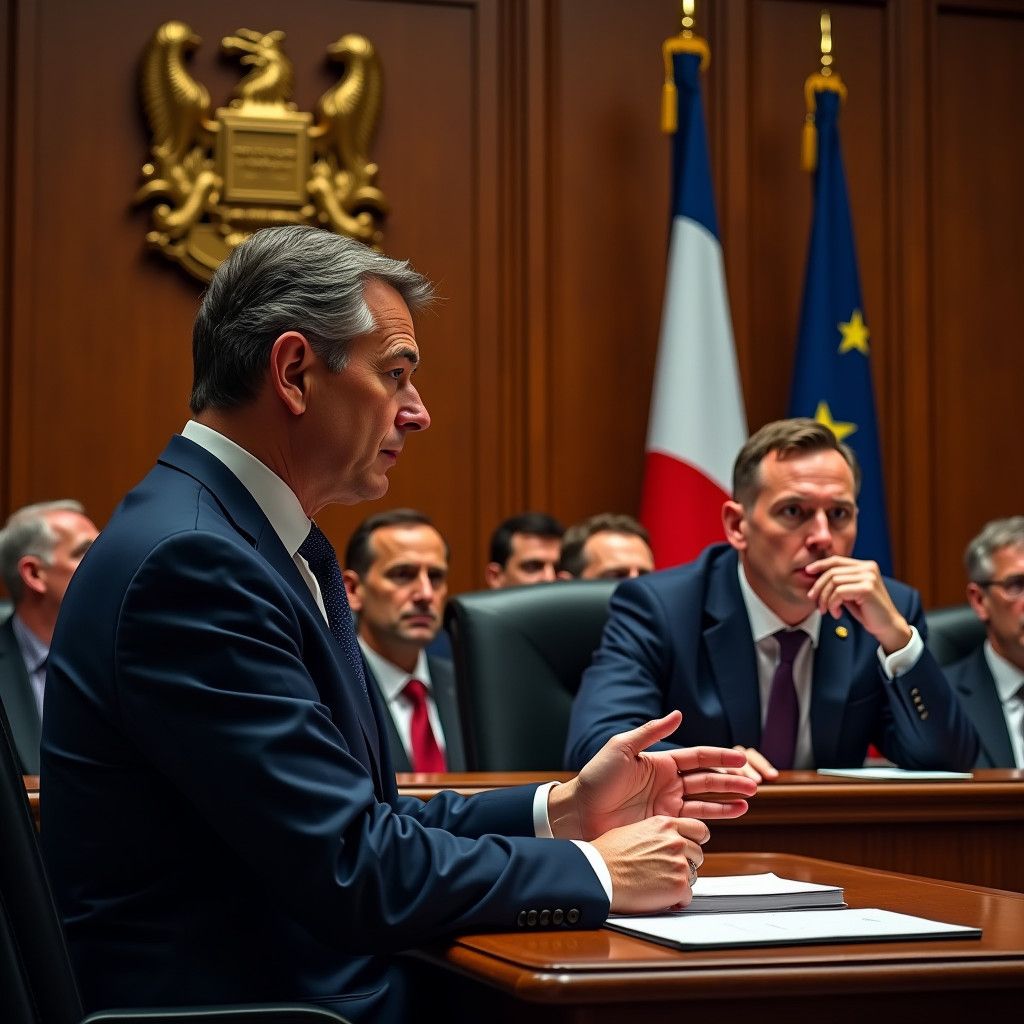In a high-profile trial in Paris, Bernard Arnault, the chairman and CEO of LVMH, testified regarding surveillance activities ordered by a former intelligence chief, Bernard Squarcini. As the world’s largest luxury goods company faces scrutiny over its actions, Arnault’s statements raised questions about corporate governance and ethical boundaries in the luxury sector.
Arnault’s testimony focused on allegations that Squarcini, who was hired as a security consultant after leading France’s domestic security services, engaged in illegal activities to combat counterfeiting and monitor activists opposed to LVMH. According to court proceedings, Squarcini is accused of unlawfully collecting private information and violating privacy laws under French jurisdiction.
During his testimony, Arnault emphasized his unawareness of the operations led by Pierre Gode, his deceased right-hand man, who reportedly hired Squarcini. “I was absolutely not aware,” Arnault stated, reiterating LVMH’s commitment to legal compliance. This defense tactic highlights a crucial aspect of corporate leadership—accountability and visibility within the highest echelons of management. While Arnault is not personally implicated in any wrongdoing, the case spotlights potential lapses in oversight within one of the world’s most powerful corporations.
The implications of this legal battle are profound for the luxury industry, which has increasingly faced challenges such as counterfeiting and consumer activism. LVMH, having settled a €10 million fine in 2021 related to this investigation, now finds itself at the intersection of brand reputation and ethical scrutiny. This trial serves as a stark reminder of the lengths to which corporations might go to protect their images.
Notably, the testimony occurred during a tumultuous time for LVMH, as the luxury market grapples with declining sales and a shift in leadership dynamics. Arnault’s eldest son, Antoine Arnault, along with other executives, observed the proceedings, suggesting a potential transition in leadership and the importance of maintaining a positive reputation for future generations. This prime example of succession planning amidst controversy illustrates the delicate balance of legacy and innovation within a luxury powerhouse.
Squarcini’s actions reportedly extended beyond merely addressing counterfeiting; he allegedly monitored leftist activists, such as Francois Ruffin, who aimed to protest during an LVMH shareholders’ meeting and produced “Merci Patron,” a satirical documentary critiquing corporate practices in France. During the trial, Arnault stated he found the documentary “very funny,” indicating that some criticisms, while pointed, may also be met with a degree of levity in corporate contexts.
This moment crystallizes the tension between luxury brands and societal scrutiny. Consumers are becoming increasingly vigilant about the practices of the companies they support, demanding transparency and integrity. As a result, brands like LVMH could face growing pressure not only to navigate legal challenges but also to actively engage with their critics and adapt to the evolving landscape of consumer expectations.
To mitigate reputational damage, luxury brands likely need to prioritize ethical governance frameworks that are transparent and accountable. Building a culture where ethical considerations are paramount can influence not only legal compliance but also consumer loyalty. This new approach should encompass rigorous oversight mechanisms to ensure decisions align with both the law and public sentiment.
In reflecting on the case’s significance, it demonstrates the multifaceted challenges faced by luxury brands today. The interplay of legal scrutiny, corporate governance, and consumer activism will shape the future of the industry. As LVMH’s legal saga unfolds, it serves as a critical example for other brands, reinforcing the need for ethical leadership, in short supply in an era marked by rapid change and heightened expectations.
In conclusion, Bernard Arnault’s testimony at this high-profile trial embodies the complexities of maintaining a luxury brand’s prestige while adhering to legal and ethical standards. The legal environment surrounding corporate operations is evolving, making it essential for brands to remain vigilant. This case will undoubtedly serve as a reference point for discussions on corporate ethics, governance, and the relationship between luxury brands and their stakeholders.












